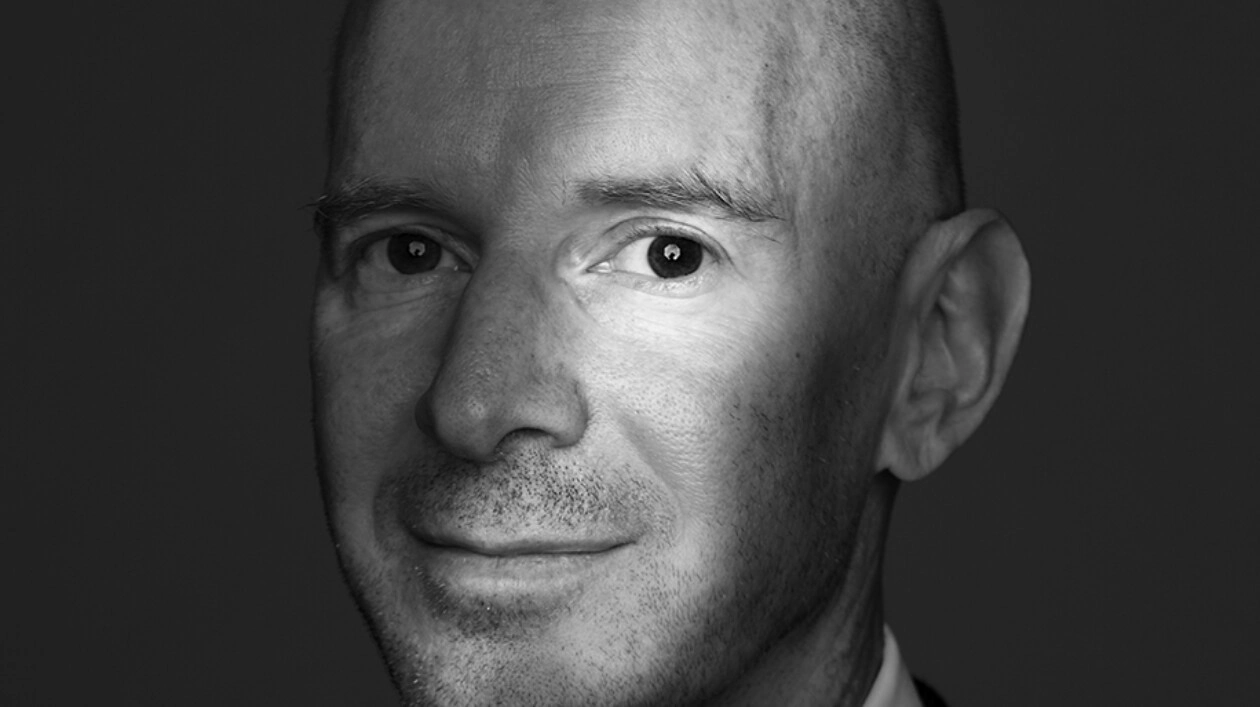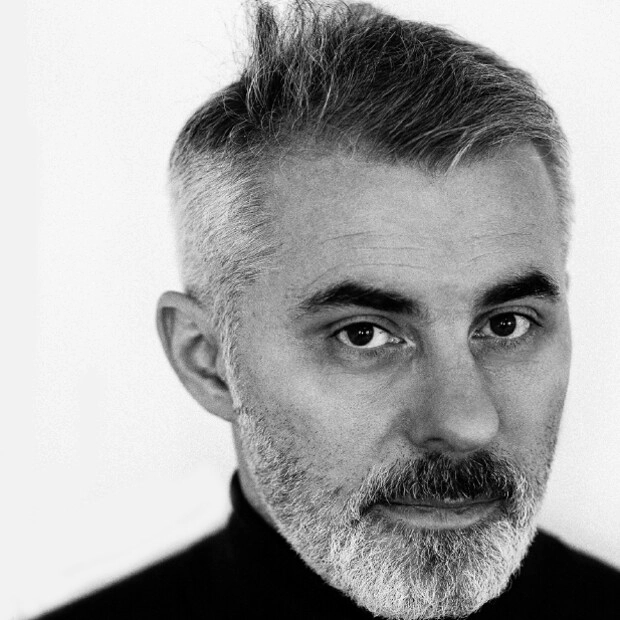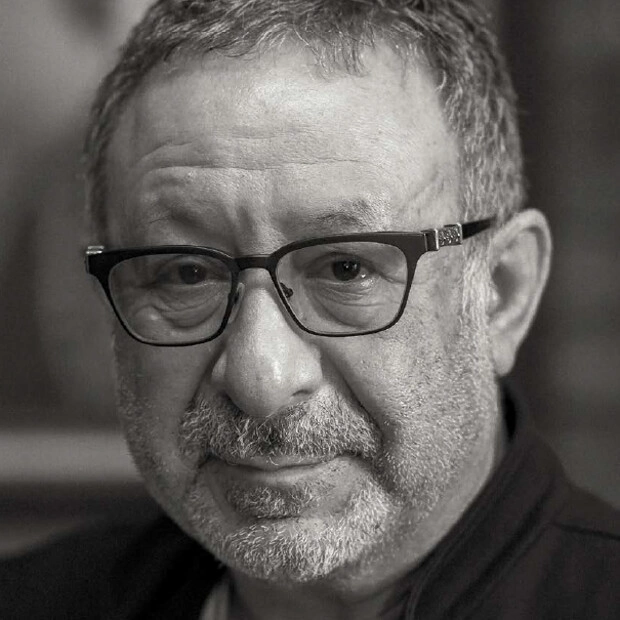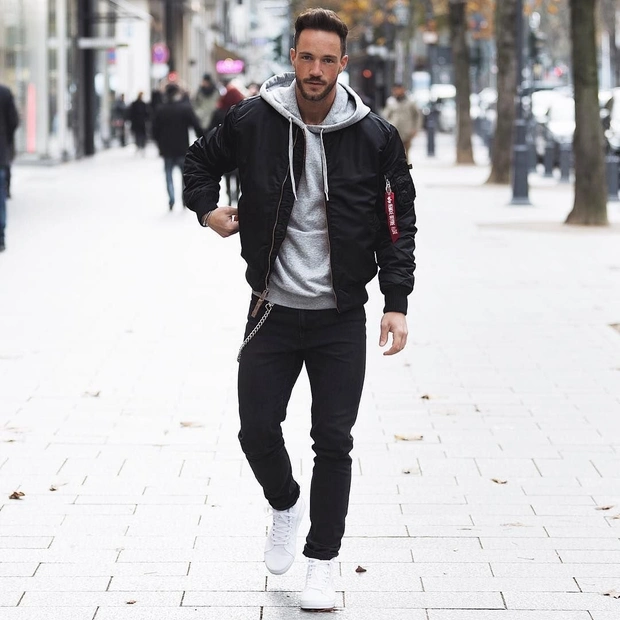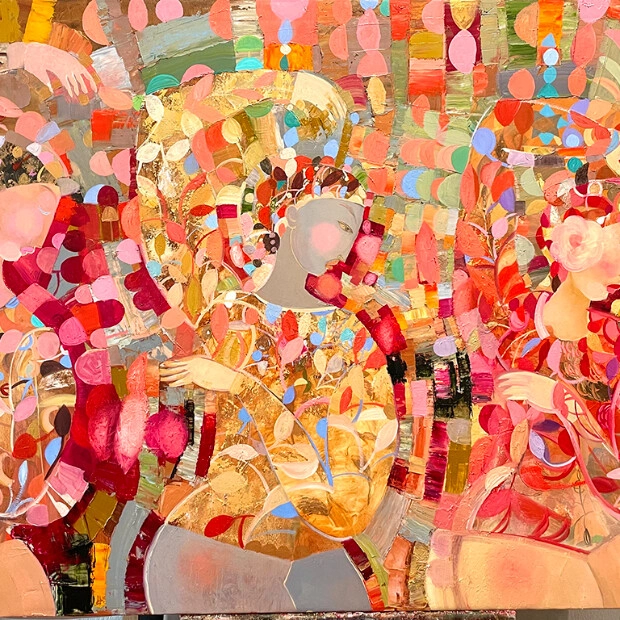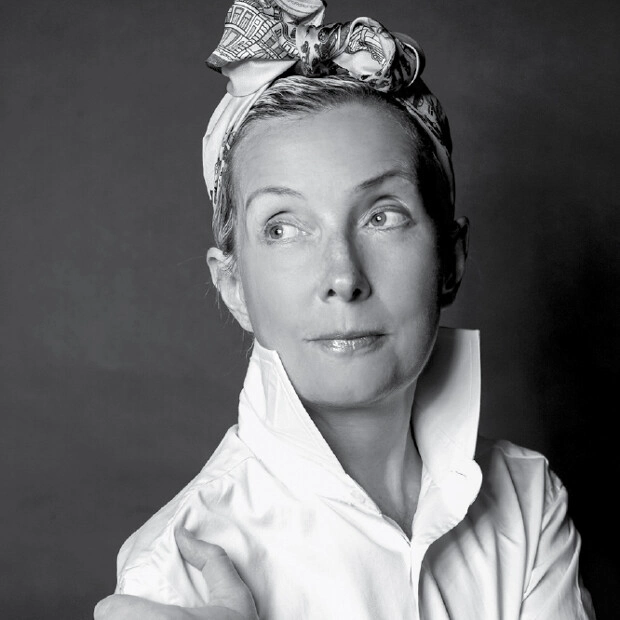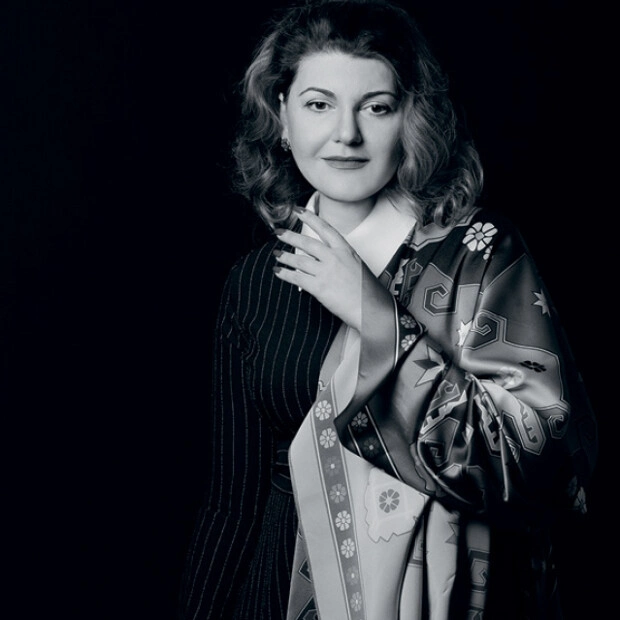Ordinary people live their lives without much self-analysis, just eating, sleeping, earning money, and taking care of other points on their agendas until they die. In the meantime, there is a different way – Stop to think. Ask yourself three most important questions and be honest answering them. Practise yoga. Have a bit of David Bowie in your character. Make sure this is your way of life. Experience enlightenment and liberation – Eddie Stern, a yoga teacher, author, and lecturer dwells on learning and teaching, based on the meta-position of self-awareness.
Passionate about yoga and fascinated with the richness of Indic traditions, I’ve been practising Hinduism for many years. You know, there is a tremendous wealth of knowledge and devotion, contained in yoga techniques and Hindu texts. Some consider them different, while others think them to be pretty much the same. What has always attracted me is studying, learning, and trying out these modalities as ways of coming in contact with the inner state of consciousness. That’s how we all can learn more about who we are, what we feel, what we want to express, do, and create in our lives. That’s what I’ve been doing ever since I was about 18 years of age.
It’s amazing how while doing a very intensive retreat in India, I recalled my earliest life experience I’d gone through when I was six months old - my mother’s stopping breastfeeding me. The memory of her embrace ending and being separated from her was so crushingly painful that I could not even utter the words ‘mother’ and ‘mom’ for a month or so - every time, I would burst out crying.
As to my mission, I wouldn’t call it overarching. What I really like is learning new things and sharing my knowledge with other people. I am sure whatever we love should be shared for others to know, enjoy, and use to make their lives better.
I left school at 18 and feeling classroom learning was not my cup of tea, I didn’t go to university but went to India instead. Last year, I turned 54 and finally felt ready to go to college. I enrolled for an online yoga university course and now, I’m already in my fourth semester. Well, I’ve realised that even knowing about yoga as much as I do, I still have to learn a lot more, es- pecially how enjoyable this process is. I’ve also discovered I still very much love learning new things from whoever knowing more than I do. This reinvigorated love for learning really expands my perspective and inlarges the knowledge I already have.
I often come across people to learn from. Just recently, I was taught about the importance and impact of expressing gratitude, even when you don’t actually have to do it. One of the high-profile individuals I work with, all of a sudden, reached out to thank me for always being there to teach him. There was no apparent reason for that person to do that. At the time, he and his band were in the middle of a big world tour, with all sorts of stuff going on around them, including playing at stadiums for hundreds of thousands of their fans. Well, it was a timely reminder for me to thank those around me all the time. Spontaneously, without planning it, you know. As soon as it comes to mind, don’t think twice but go ahead and express it. Just pick up your phone and make a call or send a text. It was, indeed, a valuable lesson of spontaneous gratitude.
As a matter of fact, the best teacher for me is my wife. Allowing me no nonsense, she demands that I should be honest to the bone. Most school and university teachers are not so radical, unwilling ‘to invest’ a lot in you, so sometimes skirting around certain things. A good wife is a totally different story. She should keep you in line, especially when absorbed in something, working too hard, or for whatever other reasons, you start straying away. That’s what a good spouse should be able to do.
I also learn a great deal from books. I love reading fiction but being at school at the moment, I don’t have enough time for that right now. I read a lot of philosophical works. The one that has been guiding me through life for 20 years or so is entitled ‘The Yoga Sutras’ by Patanjali. Of utmost importance for me is also another classical Hindu text – ‘The Bhagavad Gita’. One of the reasons for their significance is that while re-reading them, I never get bored but always learn something new. Every time, I discover another layer of ‘the onion’ to peel and explore, so to speak. These two books have been my main guardians for most of my life.
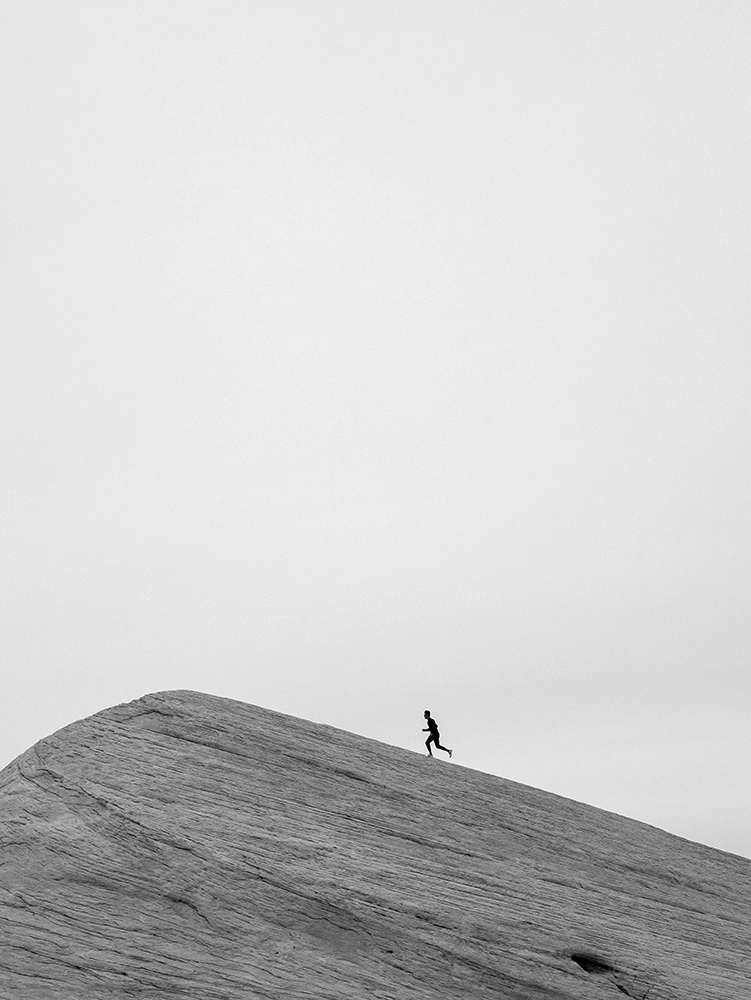
Besides ancient Indian philosophy teachers, my favourite philosopher is David Bowie. He understood the drama of artistry as well as how to play and drop one’s character. Most of us latch onto a single one and try to play it throughout our whole lives. David realised that our characters and person- alities are no more than illusions that can be changed. True artists always seek to get into a discomforting or uncomfortable situation to boost their creativity, making sure they are never satisfied with their current knowledge and their fans’ expectations. David, too, never allowed himself to get stuck in a comfort zone, always pushing boundaries. He did not consider himself a rock star as many called him. He was an Artist whose art lay in creating characters, music, costumes, and everything else necessary for performing at The Theatre of Life. As a matter of fact, we all are in this Theatre, thinking it to be real and wishing to succeed on its stage. We strive to be good performers, get things done in the right way, and, you know, basically conquer the world. Knowing The Theatre of Life was illusory, temporary, and changeable, David still played his role, giving him freedom to invent new ways to express himself. That’s what his famous phrase ‘I find only freedom in the realms of eccentricity’ actually means. Being a great fan of David Bowie’s music, I also find him very inspiring. Elegant and articulate, he had class and a lot of insight into what living a good life is all about.
It’s perfectly all right to be enamoured with philosophers no longer alive, such as Spinoza, Aristotle, or Shankaracharya. You can choose any human already dead, put him / her on a pedestal, and never have to deal with his / her faults. You may even wish you could have met your idol in person. But what if he / she was a big jerk? You never know. This person might have chewed food with his / her mouth wide open, blown his / her nose into a napkin, leaving it on the table, or done suchlike gruesome things being absolutely uncultured. Yes, gurus and philosophers of the past may be useful to a certain extent, but the problem with them is that they’re not practical. I think it would be much better to have not only inspiring but also verifiable role models, whose lives do correspond to their philosophies. Actions speaking louder than words, we need people known to be alive - those who can be observed throughout their lives, changing themselves for the better all along the way. Are such individuals perfect? No, they are not. Still, they are absolutely amazing!
So, I continually find myself learning things. That’s what I use my life for, you know. I consider it a life-long must-do as even though our self-awareness is always there for us, our life circumstances change all the time. It may be a trifle nuisance, like being late for a meeting, missing a phone call, or having too many e-mails to handle. It might be a big problem or a major heartbreak – going broke, losing a job, or a dear family member passing away. Or it may be even something positive and inspiring, say, getting a promotion or a pay rise and whatever else imaginable. When such things occur, we may find ourselves too absorbed in them, somewhat losing touch with our self-awareness. If it happens, we have to rebalance ourselves by returning to ‘the centre point’ of self-awareness. This is the very essence of any spiritual practice. That’s what we must keep doing throughout all our lives. Until we transcend the mind and become perfected, we are going to have thoughts and identify with them. As long as we are alive, the world we live in will always be providing us with experiences to ponder on and work out relevant thoughts to identify with. Doing so, we disconnect ourselves from our witnessing self-awareness and have to reconnect to it again and again. That’s basically what I’ve been practising since I was in my mid teens. At our English lessons in the 9th and 10th grades, we read a book titled ‘Siddhartha’. Our English teacher, Mrs. Jane Bendetson by name, advised us to always ask ourselves three most important questions: Who am I? What am I doing here? What do I do next? That advice of hers was an eye-opener for me, introducing me to a life of philosophy and reflection that I’ve been living ever since.
I keep asking those three questions about myself, my current status, and my life purpose as this is the way to firmly establish and perfect myself. Once I manage to do it, my foundation will be unshakable, and I won’t have to ask them any more. That is what they call enlightenment or liberation. When it becomes your permanent state, nothing will change it - there you are, and there’s no more questioning. Reaching this state does not mean getting an answer to your question. At this point, the question just falls away as you yourself become the answer. That’s how the Hindu tradition explains what happens.
As to myself, my next step is to finish my Master’s Programme. And a couple of books I’m also working on. Then, there’s also a breathing app we’ve just presented, and we’re also working on a special one for diabetes patients. I would very much like to see the healthcare world add yoga as an adjunctive therapy to the treatment methods already used to provide patients with very low-cost healing tools. Learning while living, I feel good helping and teaching others.
Meanwhile, if you wonder whether yoga is useful or not, you might be ready for getting in touch with your self-awareness. Why don’t you give it a try?
